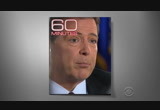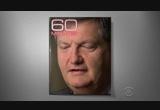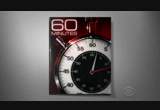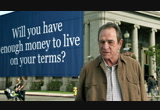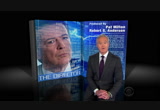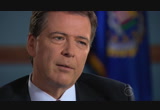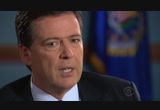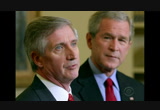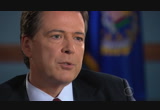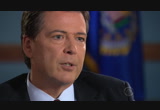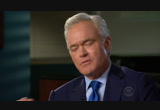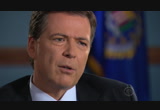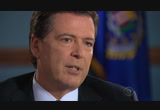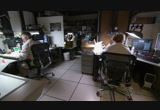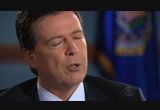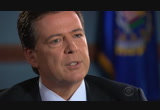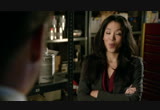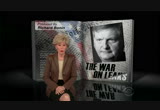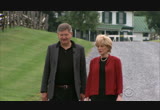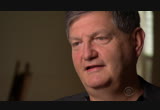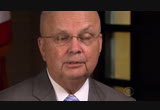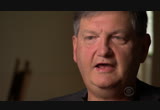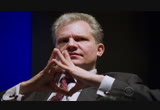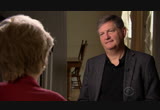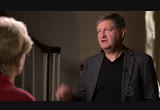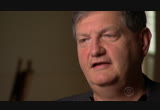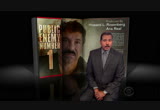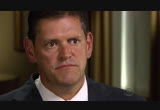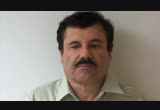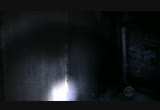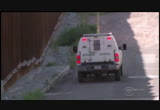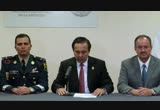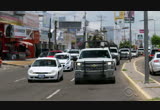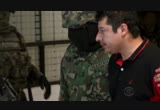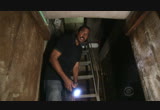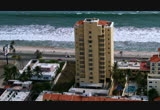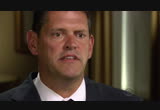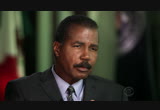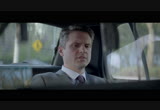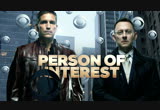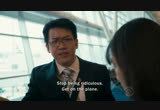tv 60 Minutes CBS October 12, 2014 7:00pm-8:02pm EDT
7:00 pm
waives the monthly maintenance fee. captioning funded by cbs and ford >> i believe that americans should be deeply skeptical of government power. you cannot trust people in power. the founders knew that. >> pelley: that's the director of the f.b.i. making that statement. james comey surprised us on many fronts, including questions about government snooping, how google and apple devices are testing his agency, the plague of cyber-crime and... when the phone rings in the middle of the night, which i'm sure it does, what's your first thought? >> something has blown up. yeah. >> stahl: it may be the biggest confrontation between the white house and the american press since nixon kept an enemies list during the watergate era. pulitzer prize-winning reporter jim risen has been battling both the bush and obama
7:01 pm
administrations trying to keep his sources secret after uncovering classified government programs, including spying on americans. will you divulge your source? >> no. >> stahl: never. >> never, no. basically, the choice the government's given me is give up everything i believe or go to jail. so i'm not going to talk. >> he's a monster that happened to rise up in a criminal organization that was making billions of dollars. >> whitaker: the monster he's talking about was the head of an international drug cartel that put more narcotics on u.s. streets than any other in history. known as "el chapo," he became the most wanted man in the world, infamous for his james bond-like escape from authority. the tub. look at this. the escape hatch. what was the end of the line like for public enemy number one?
7:02 pm
that's our story tonight. >> i'm steve kroft. >> i'm lesley stahl. >> i'm morley safer. >> i'm bob simon. >> i'm bill whitaker. >> i'm scott pelley. those stories tonight on "60 minutes." my name is karen and i have diabetic nerve pain. it's progressive pain. first that feeling of numbness. then hot pins. almost like lightning bolts, hot strikes into my feet. so my doctor prescribed lyrica. the pain has been reduced and i feel better than i did before. [ male announcer ] it's known that diabetes damages nerves. lyrica is fda-approved to treat diabetic nerve pain. lyrica is not for everyone. it may cause serious allergic reactions or suicidal thoughts or actions. tell your doctor right away if you have these, new or worsening depression, or unusual changes in mood or behavior. or, swelling, trouble breathing, rash, hives, blisters, changes in eyesight, including blurry vision, muscle pain with fever, tired feeling or skin sores from diabetes.
7:03 pm
common side effects are dizziness, sleepiness, weight gain and swelling of hands, legs and feet. don't drink alcohol while taking lyrica. don't drive or use machinery until you know how lyrica affects you. those who have had a drug or alcohol problem may be more likely to misuse lyrica. [ karen ] having less pain, that means everything to me. [ male announcer ] ask your doctor about lyrica today. it's specific treatment for diabetic nerve pain. the design of the ford escape is clearly intended to grab your eye.
7:04 pm
♪ oh, and your foot. ain't that a kick? the ford escape with the foot-activated liftgate. ♪ go open up something interesting. go further. [cat thinking] yyou smell... nothing. [announcer] introducing the best lightweight litter for odor elimination, guaranteed. fresh step extreme... lightweight. ameriprise asked people a simple question: in retirement, will you have enough money to live life on your terms?
7:05 pm
i sure hope so. with healthcare costs, who knows. umm... everyone has retirement questions. so ameriprise created the exclusive confident retirement approach. now you and your ameripise advisor.... can get the real answers you need. start building your confident retirement today. >> pelley: james comey, the director of the f.b.i., says the internet is the most dangerous parking lot imaginable, meaning that, online, you'll get mugged in ways that you never saw coming. we saw what he meant this month when jp morgan chase, the
7:06 pm
nation's largest bank, admitted that its system was looted for weeks by computer criminals who stole personal information from 83 million customers. last week on "60 minutes," we spoke to james comey about terrorism. tonight, a surprising conversation about our lives online-- not only the criminal menace, but also snooping by agencies like the f.b.i. what does america's top cop think of government surveillance? well, as we said, it's a surprising conversation. >> james comey: i believe that americans should be deeply skeptical of government power. you cannot trust people in power. the founders knew that. that's why they divided power among three branches, to set interest against interest. >> pelley: with regard to privacy and civil liberties, what guarantee are you willing to give to the american people? >> comey: the promise i've tried to honor my entire career-- that the rule of law and the design of the founders, right, the oversight of courts and the
7:07 pm
oversight of congress will be at the heart of what the f.b.i. does, the way you'd want it to be. >> pelley: does the f.b.i. gather electronic surveillance that is then passed to the national security agency? >> comey: that's one of those things i don't know whether i can talk about that in an open setting, so i... i better not start to go down that road with you. >> pelley: you have said, "we shouldn't be doing anything that we can't explain." but these programs are top secret. the american people can't see them and you can't explain them. >> comey: right. we can't explain everything to everybody, or the bad guys will find out what our capabilities are, both nations and individuals. what i mean is i need to be able to explain it either directly to the american people or to their elected representatives, which we do extensively with congress. >> pelley: there is no surveillance without court order? >> comey: by the f.b.i.? no. we don't do electronic surveillance without a court order. >> pelley: you know that some
quote
quote
7:08 pm
people are
quote
7:09 pm
activities that
quote
quote
7:10 pm
quote
7:11 pm
quote
7:12 pm
law, in your estimation? >> comey: yes. >> pelley: help me understand the principle at stake here that caused you to write a letter of resignation, to rush to the attorney general's bedside, to tell the president that he couldn't have what he wanted, and to face down the president's chief of staff. what was it that motivated that? >> comey: the rule of law. simple as that. >> pelley: we talked with comey, who is 6'8", at his headquarters in washington. in technology, the cutting edge cuts both ways,
7:13 pm
allow someone to place themselves beyond the law troubles me a lot. as a country, i don't know why we would want to put people beyond the law-- that is, sell cars with trunks that couldn't ever be opened by law enforcement with a court order, or sell an apartment that could never be entered, even by law enforcement. would you want to live in that neighborhood? this is a similar concern. the notion that people have devices, again, that, with court orders based on a showing of probable cause in a case involving kidnapping or child exploitation or terrorism, we
7:14 pm
leads in the theft of jp morgan's data. often in cases like that, the suspects are overseas. so the trouble is, in cyberspace, where do you put the handcuffs? >> comey: it's too easy for those criminals to think that "i can sit in my basement halfway around the world and steal everything that matters to an american. and it's a freebie, because i'm so far away." >> pelley: a lot of those people are operating in countries where they're not going to be given up to the united states-- russia, china, elsewhere. >> comey: yep, a challenge that we face, so we try to approach that two ways. one, work with all foreign nations to try and have them understand that it's in nobody's interest to have criminal thugs in your country, and second, again, to look to lay hands on them if they leave those safe havens to impose a real cost on them. we want them looking over their shoulders when they're sitting at the keyboard. >> pelley: when the phone rings in the middle of the night, which i'm sure it does, what's your first thought? >> comey: something has blown
7:15 pm
up. yeah. >> pelley: it's terrorism that concerns you the most, even after all we said about cyber- crime. >> comey: yeah, i think that's right, because it's terrorism that can have the most horrific, immediate impact on innocent people. >> pelley: in the age of terrorism, the budget of the f.b.i. has doubled, adding capabilities like this reference library for bombs. since 2003, they've analyzed 100,000 bombs sent here from 40 nations. from blasted remains like this circuit board, they can piece together the "what" and the "how" that lead to the "who". it's just some of the 21st century technology that is transforming the 106-year-old bureau. we also saw a new virtual world, where agents are put through any nightmare that instructors can program into their goggles. >> comey: to their mind's eye, they're in an alley or they're in an apartment building or they're coming into a house, because the computer can create
quote
7:16 pm
that through the virtual reality glasses that they wear. it's a great way to be able to train lots of people for lots of different missions, all in a big empty room. >> f.b.i.! let me see your hands! >> pelley: we're told that the deadliest avatar is a little old lady with a handgun. >> subject detained! >> pelley: we also traveled to a town that doesn't exist on any map. it's a crime scene training ground. and when we were there, the agents were using lasers to figure out from which direction shots were fired. a fog machine reveals
7:17 pm
hoover requests authority for "technical surveillance" of king. the approval is signed by attorney general robert kennedy. and there was no court order. it was the signature of the f.b.i. director and the signature of the attorney general? >> comey: yep. and then, open-ended-- no time limit, no space restriction, no review, no oversight. >> pelley: and given the threats in the world today, wouldn't that make your job so much easier? >> comey: in a sense, but in... also in a sense, we would give up so much that makes sure that we're rooted in the
quote
7:18 pm
correcting some of the things that happened in the
7:19 pm
and cialis for daily use helps you be ready anytime the moment is right. cialis is also the only daily ed tablet approved to treat symptoms of bph, like needing to go frequently. tell your doctor about all your medical conditions and medicines, and ask if your heart is healthy enough for sex. do not take cialis if you take nitrates for chest pain, as it may cause an unsafe drop in blood pressure. do not drink alcohol in excess. side effects may include headache, upset stomach, delayed backache or muscle ache. to avoid long term injury, get medical help right away for an erection lasting more than four hours. if you have any sudden decrease or loss in hearing or vision, or any allergic reactions like rash, hives, swelling of the lips, tongue or throat, or difficulty breathing or swallowing, stop taking cialis and get medical help right away. ask your doctor about cialis for daily use and a free 30-tablet trial. no sign of him yet. keep looking. [ narrator ] their mission: to get richard sherman his campbell's chunky soup. hi, baby! hi, mama! take us home! wow!
7:20 pm
it's new chunky beer-n-cheese with beef and bacon soup. beer... cheese... beef... bacon... ♪ i love it. and mama loves you. [ all ] awwwwww! it fills you up right. [ all ] awwwwww! went to the auction. started my camry. won a storage locker. found an old guitar. tracked down the previous owner. reunited them. hit the jackpot. the bold new camry. one bold choice leads to another. toyota. let's go places.
quote
7:21 pm
7:22 pm
national security collide with the public's right to know. that dilemma is at the heart of the case of james risen, a pulitzer-prize winning investigative reporter for "the new york times." risen was the first to break the story about the n.s.a.'s secret wiretapping program that monitored americans' phone calls without a court warrant. he's been subpoenaed to divulge his confidential sources in a separate federal criminal trial. he appealed the subpoena all the way up to the supreme court, but the court turned down his petition. now, if he doesn't name names, he could go to jail. will you divulge your source? >> james risen: no. >> stahl: never? >> risen: never, no. basically, the choice the government's given me is give up everything i believe or go to jail. so, i'm not going to... i'm not
quote
7:23 pm
that he's stubborn, curmudgeonly and dogged. sometimes you get yourself in trouble. >> risen: yeah, the government's been after me for quite a while now, so... >> stahl:
quote
7:24 pm
>> risen: they were doing both. they had the
quote
7:25 pm
i said, "i can't tell you why. it's urgent. but i got to talk to him right now." and i was bluffing. but she... to my shock, she put him on the phone immediately. and so as soon as hayden got on the phone, i read him the top of the draft of the story, the first few paragraphs. and i heard this-- ( gasp ). ( laughs ) and i knew i had him right there. >> stahl: it's a conversation general mike hayden will never forget. so, what was your first reaction when you realized that "the new york times" was on to the n.s.a. story? >> mike hayden: well, first reaction was, this is not good news. this was a program that we relied on a great deal. it was covering al qaeda operatives inside the united states communicating with al qaeda overseas and
quote
7:26 pm
without first obtaining a court warrant. >> hayden: it was warrantless, but not unwarranted. it would've been irresponsible for n.s.a. not to have done this in the immediate aftermath of the attacks of 9/11. >> stahl: but it was eavesdropping on americans? that was the story. >> hayden: you know, one has to choose words carefully here, all right. we were allowed to intercept international calls. >> stahl: had to be overseas. >> hayden: had to be overseas. and we already had reason to believe that one or both ends of the call were affiliated with al qaeda. >> stahl: besides, government lawyers assured him that the president's authority as commander-in-chief trumped the 1978 law. in their view, the program was both legal and constitutional, though, he
7:27 pm
>> hayden: oh, god, yes. >> stahl: ...there'd be questions of legality? >> hayden: of course, and appropriateness and abuse. >> stahl: that's why you didn't want it to come out? see, that's what jim risen says- - you didn't want to be embarrassed. >> hayden: let me... let me turn it, okay? jim's going to go to jail. why? because jim wants to protect his sources. we're both in the same business- - you and me, jim and me. you have sources who remain productive only as long as you can protect them from exposure. exposing our tactics, techniques, procedures, sources, and methods harms us as much as mr. risen would be harmed if he were forced in court to
quote
7:28 pm
would be embarrassed by it because it was spying on americans? >> bill keller: i think both of those things concerned them. but it was a question of, "if we publish this story, will it," to put it bluntly, "cost lives?" >> stahl: did they argue that, that it would cost lives? >> keller: yes. there's also a context. i mean, it was not that long after 9/11, and i think all of us were affected by that. >> stahl: and so he decided not to run the story. risen was livid. it was the latest run-in with his editors, who he says had sided with the government on other stories of his involving national security. what kept you from walking out? >> risen: i wanted to get that damn story in the paper. ( laughter ) it was the best story in my life,
quote
7:29 pm
picture and to understand the whole picture. and i guess implicit in that argument is, "who... who the hell are you?" >> risen: ( laughs ) yeah. >> stahl: i'm serious. "who elected you? yeah. >> risen: the whole global war on terror has been classified. if we today had only had information that was officially authorized from the u.s. government, we would know virtually nothing
7:30 pm
second in command, says that was a turning point. >> jill abramson: it would be potentially very embarrassing to the times to have this big story come out in jim's book, and our readers would feel, why was this not in "the new york times"? >> stahl: so he forced your hand? he did. >> abramson: in some ways, he forced our hand. sure, he did. >> stahl: had you fallen under the sway of the post 9/11 concerns about safety in this country, security? >> abramson: i... i think that i had a bit, and i don't think i was alone. i think that the years right after 9/11 were a period when the washington press corps-- and i put myself very much in that group-- it wasn't
7:31 pm
that and the pressure of risen's book led the "times" to put the story back in play. and then came a climactic meeting in the oval office among president bush and general hayden, bill keller, and the publisher of the "times," arthur sulzberger, jr. >> keller: the president said, you know, "if there's another attack like 9/11, we're going to be called up before congress to explain how we let that happen. and you should be sitting alongside us." it was, in effect, you know, "you could have blood on your hands." >> stahl: he was saying, "if anything goes wrong, we're going to blame you." >> keller: right. >> stahl: and you walk out with that on your chest. >> keller: yeah. >> stahl: despite that, the "times" went to press, running the story on december 16, 2005, more than a year after risen had first offered it. and it was explosive, triggering congressional hearings and an
7:32 pm
f.b.i. investigation into who risen's sources were. the administration also reached out to leslie moonves, head of cbs, whose simon and schuster division was the publisher of risen's book, in an unsuccessful attempt to stop its publication. after more than two years, the f.b.i. stopped pursuing the leak investigation into risen's n.s.a. story. >> risen: the bush administration, i think, decided they didn't want a constitutional showdown with "the new york times" over a story like the n.s.a. story. and so i think they decided to drop that investigation and then come after me on my book. >> stahl: they came after him about this chapter detailing a botched c.i.a. operation called "merlin" involving iran's nuclear weapons program. well, it was classified information. >> risen: it was classified information, but i believed that the government was trying to cover up an embarrassment and it was not for national security reasons.
7:33 pm
>> stahl: risen was subpoenaed in 2008 to divulge his sources on merlin. but when president obama was elected, he thought it would all be over. >> risen: now, everything's going to be fine. >> stahl: he had talked about transparency and protecting whistleblowers in the campaign. >> risen: yes. and i was shocked. they said, "no, no, no, we want to keep this going," and they subpoenaed me again. >> stahl: what shocks him even more is that the obama administration has prosecuted more government leakers than all previous presidents combined, and his justice department has seized the records of phone calls made by more than 100 a.p. reporters and investigated a fox news correspondent under the espionage act. >> risen: in my case, it's come out that they got my travel records, my credit reports, my credit card data, my phone records. >> stahl: from a court warrant? >> risen: no. >> stahl: from what? >> risen: it's secret. they won't say how they got it. >> stahl: so, do you think that jim risen should be compelled to
quote
7:34 pm
divulge his sources? >> hayden: i am, like america, conflicted, okay? >> stahl: really? >> hayden: i am. i am. you're talking about ruining lives over things about which people are acting on principle,
quote
7:35 pm
that
7:36 pm
>> welcome to the cbs sports update presented by pacific life. i'm james brown with scores from around the nfl. today tom brady throws four scores for the first-place pats. the chargers make it five straight wins behind rivers with three touchdowns. the browns rush for three scores to crush the steelers. joe flacco ties a franchise record with five t.d. passes and the ravens with. the packers keep pace with the lions to silence the vikes. for more sports news and information, go to for more sports news and information, go to cbssports.com. ut for more than 145 years, pacific life has been providing solutions to help individuals like you achieve long-term financial security. bring your vision for the future to life with pacific life. talk to a financial advisor to help build and protect your retirement income. pacific life. the power to help you succeed.
7:37 pm
hard it can be...how ...to breathe with copd? it can feel like this. copd includes chronic bronchitis and emphysema. spiriva is a once-daily inhaled... ...copd maintenance treatment... ...that helps open my airways for a full 24 hours. you know, spiriva helps me breathe easier. spiriva handihaler tiotropium bromide inhalation powder does not replace rescue inhalers for sudden symptoms. tell your doctor if you have kidney problems, glaucoma, trouble urinating, or an enlarged prostate. these may worsen with spiriva. discuss all medicines you take, even eye drops. stop taking spiriva and seek immediate medical help if your breathing suddenly worsens, your throat or tongue swells,... you can get hives, vision changes or eye pain, or problems passing urine. other side effects include dry mouth and constipation. nothing can reverse copd. spiriva helps me breathe better. sfx: blowing sound. does breathing with copd... ...weigh you down? don't wait ask your doctor about
tv-commercial
7:39 pm
7:40 pm
under tom corbett, we've fallen from 9th to 47th in job creation. and on september 25th, pennsylvania's credit is downgraded for the fifth time in two years. why would we give tom corbett
7:41 pm
he bribed his way out of a mexican prison in 2001, and for the next 13 years, he used money, violence and gee-whiz escapes worthy of a james bond villain to avoid capture. a myth grew that he was untouchable. but tonight, we will show you how, in february, chapo was finally caught. after the death of osama bin laden, el chapo became the most wanted man in the world. so, getting him was a big deal for you? >> derek maltz: absolutely. in my world, it was like winning the super bowl, winning the world series. this was the actual trophy. >> whitaker: he was number one? >> maltz: absolutely. "this fight against drugs..." >> whitaker: derek maltz was in charge of the d.e.a.'s special operations division tasked with finding chapo. what put him at the top of the list? >> maltz: making billions of dollars, having a reach around the world-- in asia, in australia, in africa, in europe putting poison on the streets-- not just in the united states,
7:42 pm
but all over the world. >> whitaker: jim dinkins was head of homeland security investigations. he pursued el chapo for more than a decade. >> jim dinkins: he's a monster that happened to rise up in a criminal organization that was making billions of dollars. >> whitaker: a monster? >> dinkins: a monster. >> whitaker: until both men retired in recent months, dinkins and maltz helped coordinate the u.s. hunt for chapo-- his real name, joaquin guzman. incredibly, guzman was on the "forbes" magazine list of billionaires. he was also known to be one of the most violent drug traffickers in the world. as his sinaloa cartel fought to dominate the drug trade, the war between the cartels turned the southern side of the u.s.- mexico border into one of the most dangerous places on earth. >> maltz: thousands of people electrocuted, beheaded, chopping off limbs, throwing people in acid. he committed some ruthless
7:43 pm
crimes in mexico. >> whitaker: he's in custody now and doesn't look quite so ferocious-- cowed, his head bowed. but until he was apprehended by mexican marines, joaquin guzman, the illiterate son of a farmer, ran a multinational criminal empire. >> dinkins: they had not only transportation-- they had manufacturing, they had domestic and local distribution channels. >> maltz: very sophisticated-- with narco subs, with shipping vessels, with 747s, with private vessels, with tractor trailers, rail cars. the drug cartel was run like a... you know, a fortune 500 company. >> dinkins: he employed some very sophisticated counterintelligence operations to make sure that, if law enforcement was to get in close, they would never actually get to him. >> whitaker: chapo devised ingenious smuggling methods. >> marijuana. >> whitaker: he packed drugs into fake cucumbers and bananas, and mixed them with shipments of real produce. but the thing he worked hardest
7:44 pm
on was making sure he could always get away. chapo was the first mexican drug trafficker to hire architects and engineers to build elaborate tunnels, complete with railways, to ferry drugs under the u.s.- mexico border. and he spent millions adapting them to use as escape routes from his many hideouts. this is very tight, very hot, very close. we went down into a labyrinth of interlocking tunnels with the mexican marines who chased him. unbelievable. this was one of the ways chapo was able to elude capture time and time again. the americans thought he was being tipped off by corrupt mexican officials. but the mexicans bristled at the accusation they could not be trusted. so, there were suspicions on both sides of the border? >> maltz: absolutely, yes. >> whitaker: so, what was different this time? >> maltz: the u.s. government and the mexican government basically said, "enough is enough."
7:45 pm
and we actually, you know, rolled up our sleeves, got in a room, argued a little bit, put all the intelligence on the table, shared it with the mexicans, and ultimately grabbed chapo. >> whitaker: it started with a routine smuggling probe by homeland security investigators at the border crossing in nogales, arizona. a wire-tap unexpectedly led to a phone linked to one of chapo's men. u.s. agents followed that thread for more than two years. >> dinkins: worked it from phone to phone, device to device, person to person, until they actually had wired out the communication structure. and the communication structure was the key. it was a very clear picture to us on what was happening and how he was running this business. >> whitaker: several u.s. law enforcement agencies-- the d.e.a., the marshals, homeland security, and the f.b.i.-- were all pursuing guzman separately. but this time, they decided to streamline their efforts and funnel everything through the d.e.a.
7:46 pm
>> maltz: and we had one voice in how we were going to pursue... sharing intelligence with the mexican officials. >> whitaker: was that significant, that important, to have that one voice? >> maltz: absolutely. you can't do a job against chapo guzman unless you're working together. >> whitaker: and tomas zeron was that voice on the mexican side. >> attencion! >> whitaker: zeron is chief of the investigative agency of the prosecutor general of the republic, mexico's version of the f.b.i. the main u.s. assistance was surveillance-- wire tapping, phone surveillance, and that sort of thing? >> tomas zeron ( translated ): i will just tell you, they help us with technology, because they're really good in technology, and that will encapsulate everything. >> whitaker: zeron, in turn, tapped the mexican marines to execute the plan. they are elite special forces, highly-trained and known for using deadly force. we watched one of their training
7:47 pm
sessions, an assault on a mock- up of a cartel hideout. and we traveled with the marines to sinaloa, a remote state on the pacific coast, and to its capital, culiacan, chapo's base of operations where his cartel still rules. it was here in culiacan, on february 12, after weeks of secret surveillance, the marines started to move on the cartel, rounding up chapo's henchmen, who started to talk. >> maltz: there was a lot of close associates of chapo that were arrested over these periods of time. and there was information developed that was provided to the mexicans. so it wasn't just technical information-- bank information, surveillance information, documents, telephone information. >> whitaker: based on intelligence collected on both sides of the border, marines raided a series of cartel safe- houses on february 17. they seized more than three tons
7:48 pm
of crystal meth and cocaine, automatic weapons and ammunition, a rocket launcher, and a diamond-encrusted pistol with the initials of joaquin guzman. they also arrested one of chapo's top lieutenants, a man called "the nose." and he flipped quickly-- he told them where chapo was hiding and how he planned to escape. several weeks later, the marines took us to the place where they were told chapo was hiding. this nondescript house in the midst of a middle class neighborhood was a fortress. they had to ram their way through a reinforced steel door. it took you eight minutes to get in the door? >> si, ocho minutos. >> whitaker: when they got inside, el chapo was nowhere to be found. but they did find this. the tub. look at this. the escape hatch. the bathtub was equipped with a hydraulic lift.
7:49 pm
it's been turned off... very steep. he couldn't have done this quickly. ...but underneath is the entranceway to a hidden tunnel. while marines were battering down the front door, they say guzman, startled, barefoot and in his underwear, clambered down these stairs and escaped through this tunnel with his bodyguard and two women. this was part of a maze of tunnels connected to the city sewers of culiacan and, it turns out, to six other safe-houses, all equipped with hydraulically controlled bathtub escape hatches. our guide told us that, even though they had a ten-minute head start, he could hear the fugitives splashing through the water. but they were too far ahead to catch. when the marines emerged from this spillway by the river, el chapo had vanished. so, what did you think when he got away, once again, in culiacan? >> maltz: i never believed that he would ever be captured. >> whitaker: really?
7:50 pm
>> maltz: i thought he was gone again. i thought he may have been tipped off. >> dinkins: but the mexican marines just were relentless. and they went from house through the tunnels... from tunnels to house from house. and they just kept on going. >> whitaker: chapo and his wife, a one-time beauty queen, their twin toddlers, a nanny, a cook and his most trusted bodyguard were desperately trying to shake the marines off their trail. they ditched their phones and got new numbers. >> dinkins: he's a man on the run. you need money, you need food, you need weapons. and he was also very interested in knowing who had been arrested, i'm sure, and what was going on. so it was very hard for him to go into isolation, complete isolation. >> whitaker: how is he communicating at this point? >> dinkins: i'm sure multiple different ways, but the ways that... you know, that were the most vulnerable is back on cell phones, so... >> whitaker: so, he's... he's back using the cell phones? >> dinkins: back using cell phones, and you can't... now, you're on the run, so how they going to know to... to
7:51 pm
call... what number to call? you have to tell them, "all right, well, i got a new phone number. here it is." well, you just told us, too. >> whitaker: five days later, the americans traced the phone of chapo's bodyguard to the resort city of mazatlan, 136 miles away, and to this beachfront building. they shared that intelligence with the mexicans. at exactly 6:40 a.m. on february 22, the marines crashed through the door of number 401. when he saw the red beads of their laser sights speckled on his chest, the bodyguard threw down his rifle and threw up his hands. next, the marines burst through the door of the master bedroom, where chapo's wife stood naked by the bed. a marine pushed past her and kicked in the bathroom door. there was somebody behind it. it was el chapo. back in mexico city, tomas zeron and his team were listening in real time as the high-stakes drama of chapo's capture unfolded.
7:52 pm
was there cheering? was there high-fiving? >> zeron: of course. it was a jubilee. we felt, at that point, that we were all one, that we were all doing something to have a good mexico. >> dinkins: we did not ever anticipate that he'd be captured alive. we thought he'd fight to the death. >> whitaker: are you surprised that he didn't? >> dinkins: i was surprised. >> maltz: i was shocked. >> whitaker: shocked? >> maltz: absolutely shocked! >> whitaker: what shocked you more, that he was captured, or that he was captured without a shot? >> maltz: both. captured without a shot was pretty amazing. >> whitaker: the once-mighty drug lord who terrorized mexico and out-foxed his pursuers for 13 years was defeated. processed like any common criminal, guzman was finger- printed, mug shots taken. then, he was paraded before the press like a trophy and loaded onto a helicopter. looking dazed, scared, and docile, el chapo was flown to altiplano prison, mexico's super-max.
7:53 pm
law enforcement officials vow he will never escape again. the sinaloa cartel is still in business. it's still deeply involved in drug trafficking. so guzman is now gone but has anything really changed? >> zeron: the cartel continues, but even though it continues, we have made detentions after we detained guzman. we are not going to leave sinaloa, and we are going to stay there until we dismantle the cartel completely. >> dinkins: we know that, when you take out bin laden, that the threat of terrorism did not end. nor will the threat of drugs end by taking out el chapo. but it was still worth every bit of effort to take that man off, because it sends a signal that you are touchable. >> for a look at bill whitaker's career as a cbs news correspondent, go to
7:54 pm
60minutesovertime.com. kid: hey dad, who was that man? dad: he's our broker. he helps looks after all our money. kid: do you pay him? dad: of course. kid: how much? dad: i don't know exactly. kid: what if you're not happy? does he have to pay you back? dad: nope. kid: why not? dad: it doesn't work that way. kid: why not? vo: are you asking enough questions about the way your wealth is managed? wealth management at charles schwab worse and worse.rthritis, i had intense joint pain that got then my rheumatologist prescribed enbrel. i'm phil mickelson, pro golfer. enbrel helps relieve pain and stop joint damage. i've been on the course and on the road. enbrel may lower your ability to fight infections. serious, sometimes fatal events including infections, tuberculosis, lymphoma, other cancers, nervous system
7:55 pm
and blood disorders, and allergic reactions have occurred. before starting enbrel, your doctor should test you for tuberculosis and discuss whether you've been to a region where certain fungal infections are common. you should not start enbrel if you have an infection like the flu. tell your doctor if you're prone to infections, have cuts or sores, have had hepatitis b, have been treated for heart failure, or if you have symptoms such as persistent fever, bruising, bleeding, or paleness. enbrel helped relieve my joint pain. but the best part of every journey... dad!!! ...is coming home. ask if enbrel, the number one biologic medicine prescribed by rheumatologists, can help you stop joint damage.
7:56 pm
♪ this flu season... remember this. your immune system doesn't work the way it did when rock was young. so we made fluzone high-dose vaccine... for people 65+. fluzone high-dose vaccine has a high high higher... dose of antigen... for a stronger immune response. fluzone high-dose vaccine is approved for people 65 and older. it's not for anyone who's had a severe allergic reaction to any vaccine component, including eggs, egg products, or to a prior dose of any flu vaccine. tell your doctor if you've had guillain-barré syndrome. side effects include pain, swelling and redness at the injection site; muscle aches, fatigue, headache and fever.
7:57 pm
other side effects may occur. if you have other symptoms or problems following vaccination, call your doctor immediately. vaccination may not protect everyone. so if you hopped around the clock, ask your health care provider about fluzone high-dose vaccine. fluzone high-dose vaccine. >> stahl: i'm lesley stahl. we'll be back next week with another edition of "60 minutes." [prof. burke] it's easy to buy insurance and forget about it. but the more you learn about your coverage, the more gaps you might find. like how you thought you were covered for this. [boy] check it out,mom! [prof. burke]when you're really only covered for this. or how you figured you were covered for this. when you're actually paying for this. you might be surprised at what's hiding in your coverage. talk to farmers and get smarter about your insurance. ♪ we are farmers bum-pa-dum, bum-bum-bum-bum ♪ [announcer] call 1-800-farmers and see how much you could save.
7:58 pm
8:00 pm
flight attendant: good morning, everybody. we are now boarding group three. group three. ellipse airlines flight 504 to beijing. group three. that's rows ten through 25. please have your tickets ready. you do not need to show us your passports again. thank you. (indistinct chatter in mandarin) (scanner beeping)
8:01 pm
(speaks mandarin) no, i'm not going. (speaking mandarin) no. i'm not going. i'm not going to china. they'll arrest me. i want to stay in the united states. i want political asylum. (man continues yelling in mandarin) (siren wailing) oh, hey. hey, russell. i have a budget meeting. it's just gonna take a sec. it's about the henkashu islands. remind me. four uninhabited rocky outcroppings in the east china sea. right. china and japan both claim ownership in a dispute going back generations, which picked up steam once it became clear that there's natural gas deposits underneath them. two weeks ago, china sent a reconnaissance plane over the islands, japan scrambled an f-15,
11,522 Views
1 Favorite
IN COLLECTIONS
KYW (CBS) Television Archive
Television Archive  Television Archive News Search Service
Television Archive News Search Service  The Chin Grimes TV News Archive
The Chin Grimes TV News Archive  TV NSA Clip Library
TV NSA Clip Library  Philly Political Media Watch Project
Philly Political Media Watch Project  Television
Television 
Uploaded by TV Archive on

 Live Music Archive
Live Music Archive Librivox Free Audio
Librivox Free Audio Metropolitan Museum
Metropolitan Museum Cleveland Museum of Art
Cleveland Museum of Art Internet Arcade
Internet Arcade Console Living Room
Console Living Room Open Library
Open Library American Libraries
American Libraries TV News
TV News Understanding 9/11
Understanding 9/11